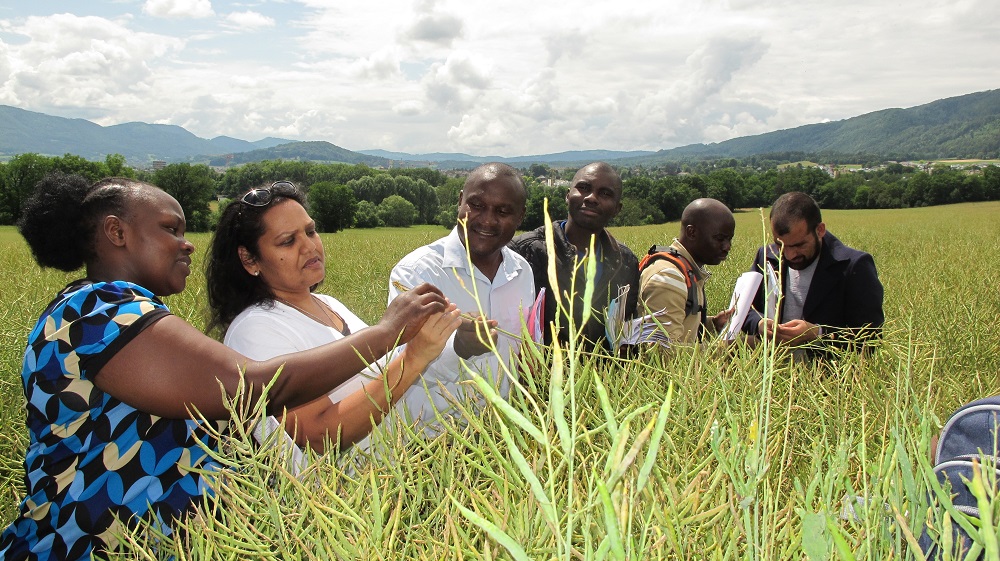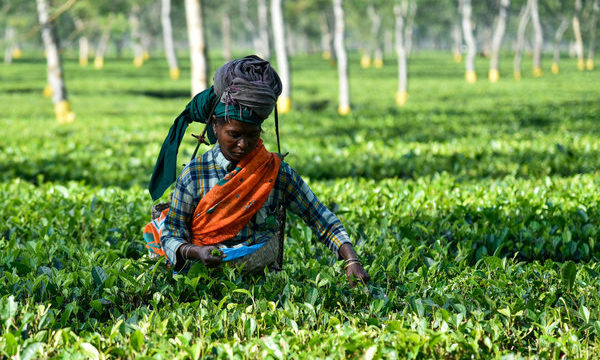
A CABI Study Brief has highlighted the many benefits of a Masters of Advanced Studies in Integrated Crop Management (MAS ICM) course enjoyed by 66 graduates including job promotion, increased confidence and greater respect in their opinions.
Other benefits of the course, which ran from 2015 to 2020 and was jointly coordinated by CABI in Switzerland and the University of Neuchâtel, were an improvement in ‘soft skills’ such as writing, presentation and training, problem solving, intercultural skills and team work.
The MAS ICM course brought together scientists, teachers, extension officers and policy makers from around the world who enriched their knowledge about the importance of ICM, supporting its adoption as a long-term strategy to address global challenges.
ICM involves managing crops to optimize yield profitably and with minimal negative impacts on the environment. It considers the local soil and climate conditions and safeguards the farm’s natural assets.
The MAS ICM study programme also addressed the wider implications of ICM, particularly the socio-economic and ecological aspects, which form the backdrop of this holistic agricultural production system.
Fifty-nine students responded to a questionnaire which revealed that the majority strongly agreed or agreed that the MAS ICM course modules were very relevant in relation to their work, with some providing more new information than others.
The students – who mainly came from Africa and Asia and of which 40% were women – also reported that the MAS ICM course had improved their understanding of more cross-cutting themes.
This included the interactions between the components of the agro-ecosystem, sustainability, the importance of biodiversity, their ability to find information, and their attitude towards rational pesticide use.
After they’d completed the course, 44% of the respondents were formally promoted, while 46% were given new or additional responsibilities. The majority (94%) thought that completing the MAS ICM course contributed to their promotion. However, a higher percentage of men than women were formally promoted (47% vs- 30%) and subsequently received a higher salary (48% vs. 35%).
CABI’s Dr Hariet Hinz, a lead author of the study brief, said, “The assessment sought to determine the actual long-term benefits experienced by the graduates after they had returned home.
“92% of respondents shared their knowledge gained, which had positive knock-on effects on their colleagues, farmers and even at policy level. This included for instance a change in attitudes towards pesticide use and an increased use of integrated management approaches by advised farmers leading to improved yields and income.”
Nearly all the respondents strongly agreed or agreed that networking activities among themselves and virtual, online courses either refreshing the MAS content, specifically with IPM methods, or dealing with new topics would improve the long-term impact of the MAS ICM course.
The study concluded that the pure knowledge transfer achieved might occur as efficiently in virtual online courses as face-to-face courses.
However, the gain in soft skills, that was a key benefit for MAS ICM students, would be challenging for those participating in a virtual course to obtain. With the face-to-face MAS ICM course ending in 2020, Online Certificates of Advanced Studies (CAS) in ICM are currently being rolled out by CABI in collaboration with the University of Neuchâtel, and the authors of the study brief believe that this programme would profit from a similar evaluation in a few years’ time.
The three CAS certificates can be combined into a Diploma of Advanced Studies (DAS).
Additional information
Study Brief Reference
Hinz, H. Grossrieder, M., Jurt Vicuña Muñoz, C., and Williams, F. (2022) Evaluation of MAS-ICM 2015-2020. CABI Study Brief 43 Learning. DOI: 10.1079/CABICOMM-62-8170
You can read the study brief in full here: https://www.cabi.org/cabi-publications/evaluation-of-mas-icm-2015-2020/
Funding acknowledgement
The study was funded by CABI Development Fund (CDF). CABI is an international intergovernmental organisation, and we gratefully acknowledge the core financial support from our Member Countries (and lead agencies) including the United Kingdom (Foreign, Commonwealth & Development Office), China (Chinese Ministry of Agriculture and Rural Affairs), Australia (Australian Centre for International Agricultural Research), Canada (Agriculture and Agri-Food Canada), Netherlands (Directorate-General for International Cooperation), and Switzerland (Swiss Agency for Development and Cooperation). See https://www.cabi.org/about-cabi/who-we-work-with/key-donors/ for details.
MAS ICM course page
Read more about the MAS ICM course – including videos of some of the students sharing their experiences – from the dedicated page here.
Related News & Blogs
“It’s science that solves problems”
I love science because it allows me explore my dreams. Agricultural science is about finding solutions for farmers, helping them reduce diseases in their fields and increase their yields so that they lose less and gain more.
10 March 2020

